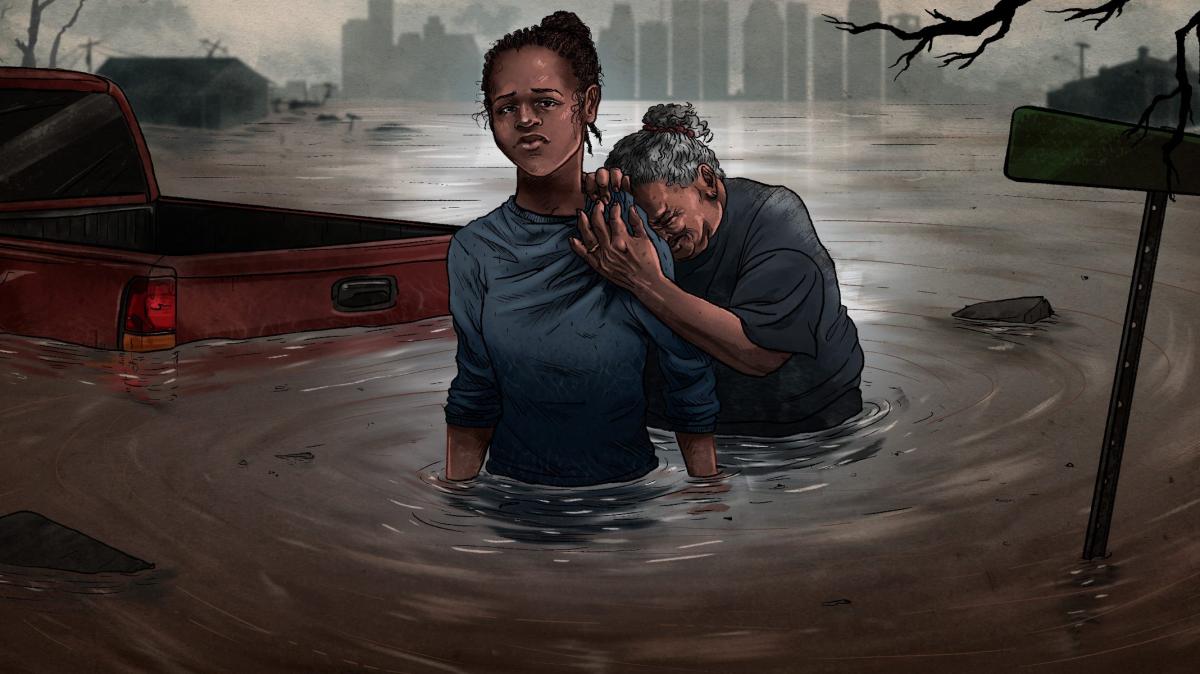Disasters are driving a mental health crisis. The only federal program to address it is underfunded.
This story was originally published by the Center for Public Integrity and appears here as part of the Climate Desk collaboration.
Barbara Herndon lay in the center of her bed, muscles tensed, eyes on the television. She was waiting for the storm.
All morning on that day in late May, the news had covered the cold front slouching south from central Texas. By late afternoon, dense ropes of clouds darkened her Houston neighborhood. Rain whipped the windows. Cyclone-force gusts rent open her backyard breaker box. She cringed at the noises, chest tightening, mind on the havoc that might follow — but ultimately didn’t.
Herndon, who as a child in southern Louisiana saw her share of hurricanes and thunderstorms, had never thought much about them. Now, even a passing squall like the May storm — lasting less than an hour — will panic the 70-year-old retiree. “I get scared,” she said. “I cry a lot, easily. That didn’t use to happen.”
Herndon is among the 50 percent of Houston-area residents who have wrestled with powerful or severe emotional distress since Hurricane Harvey deluged the city in 2017, according to a Rice University survey to be published Wednesday.... Read more

